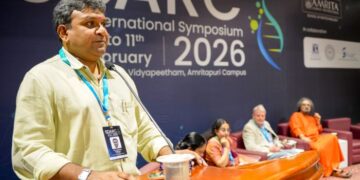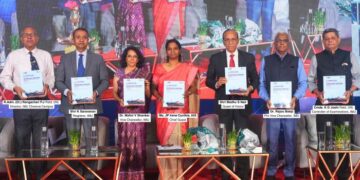The project focuses on process optimization for pulping the paddy straw to produce eco-friendly tableware. The process includes the segregation of silica and pulp by pulping the rice straw. The pulp developed will then be used for making 100% biodegradable tableware.

Talking about the project, Prof. Shivangi Viral Thakker, Faculty Mechanical Department, K J Somaiya College of Engineering and Principle Investigator of the project said, “While stubble waste management is the primary goal of the research, replacing plastic and traditional papers with the agricultural products will ensure that another national issue of Plastic and thermocoal Ban is also addressed. The products will be tested for replacing traditional tableware and papers.”
India is one of the world’s largest producers of rice, accounting for 20% of rice production worldwide. About 150-225 MMT of rice straw (Paddy straw) is generated per annum as waste. About 70-80 MMT of rice straw is disposed of by burning by the farmers. Punjab state alone generates about 20 MMT of rice straw per annum. One ton of straw burning releases 3 kg particulate matter, 60 kg CO, 1460 kg CO2, 199 kg ash, and 2 kg SO2 which causes lung and respiratory diseases and adversely affects public health. Repeated burning of paddy straw also results in soil erosion.
Dr. Ramesh Shettar (Godavari Biorefineries Limited) said, “The paddy stubble management has become a very challenging task today, despite a ban by Pollution Control Boards, stubble burning is still practiced. Repeated burning of paddy straw also results in soil erosion by heat penetration into the soil, leading to the loss of moisture and useful microbes , soil silt, and clay particles into aggregates, a loss of soil organic matter results in a loss of soil structure.”













